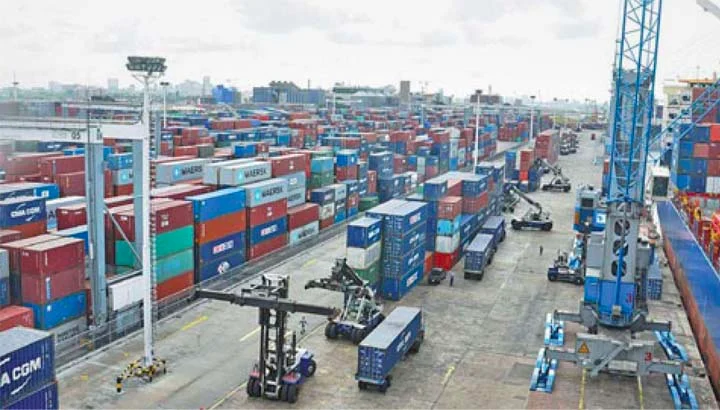Breaking News
Nigeria’s Manufactured Goods Exports Surge 46.8% to N1.1 Trillion in H1 2025
Nigeria’s manufactured goods exports surged 46.8% to N1.1 trillion in the first half of 2025, driven by naira depreciation and rising demand. Analysts say currency devaluation has boosted export competitiveness, offering new growth opportunities for the economy.

Efforts to diversify Nigeria’s export base are showing promising results as the value of manufactured goods exported in the first half of 2025 (H1’25) jumped 46.76 percent to N1.1 trillion, up from N749.5 billion in the same period last year (H1’24).
Analysis of the National Bureau of Statistics (NBS) Foreign Trade in Goods reports over the past five years shows a consistent upward trend, with a notable spike from 2023 following the Central Bank of Nigeria’s (CBN) unification of the foreign exchange market in June, which triggered a depreciation of the naira.
NBS data indicates that manufactured goods exports were N304.09 billion in H1’21, N338.61 billion in H1’22, N343.29 billion in H1’23, N749.52 billion in H1’24, and N1.10 trillion in H1’25.
The N1.1 trillion in exports represents 6.67 percent of total manufactured goods traded during the period, which stood at N16.49 trillion, slightly higher than the 6.21 percent recorded in H1’24.
Analysts have attributed the rise in exports largely to naira depreciation, which makes Nigerian goods cheaper on the international market, particularly against the appreciating CFA franc used in countries such as Benin, Burkina Faso, Côte d’Ivoire, Guinea-Bissau, Mali, Niger, Senegal, and Togo.
President of the Nigerian Economic Society, Adeola Adenikinju, explained, “One of the reasons why countries devalue their currencies is to make exports cheaper relative to other goods so they can sell more.”
Supporting this view, Dr. Muda Yusuf, CEO of the Centre for the Promotion of Private Enterprise (CPPE), said, “I think it is because of the naira depreciation. Devaluation normally creates opportunities for exports. And the surge in exports would have been more if it included the ones that are not officially captured.
“There are a lot more incentives for exporters, not the physical ones but the ones inherent in the currency devaluation. Once you have this depreciation, the export opportunities increase because our goods are cheaper,” Yusuf added.
Opinion Nigeria News










